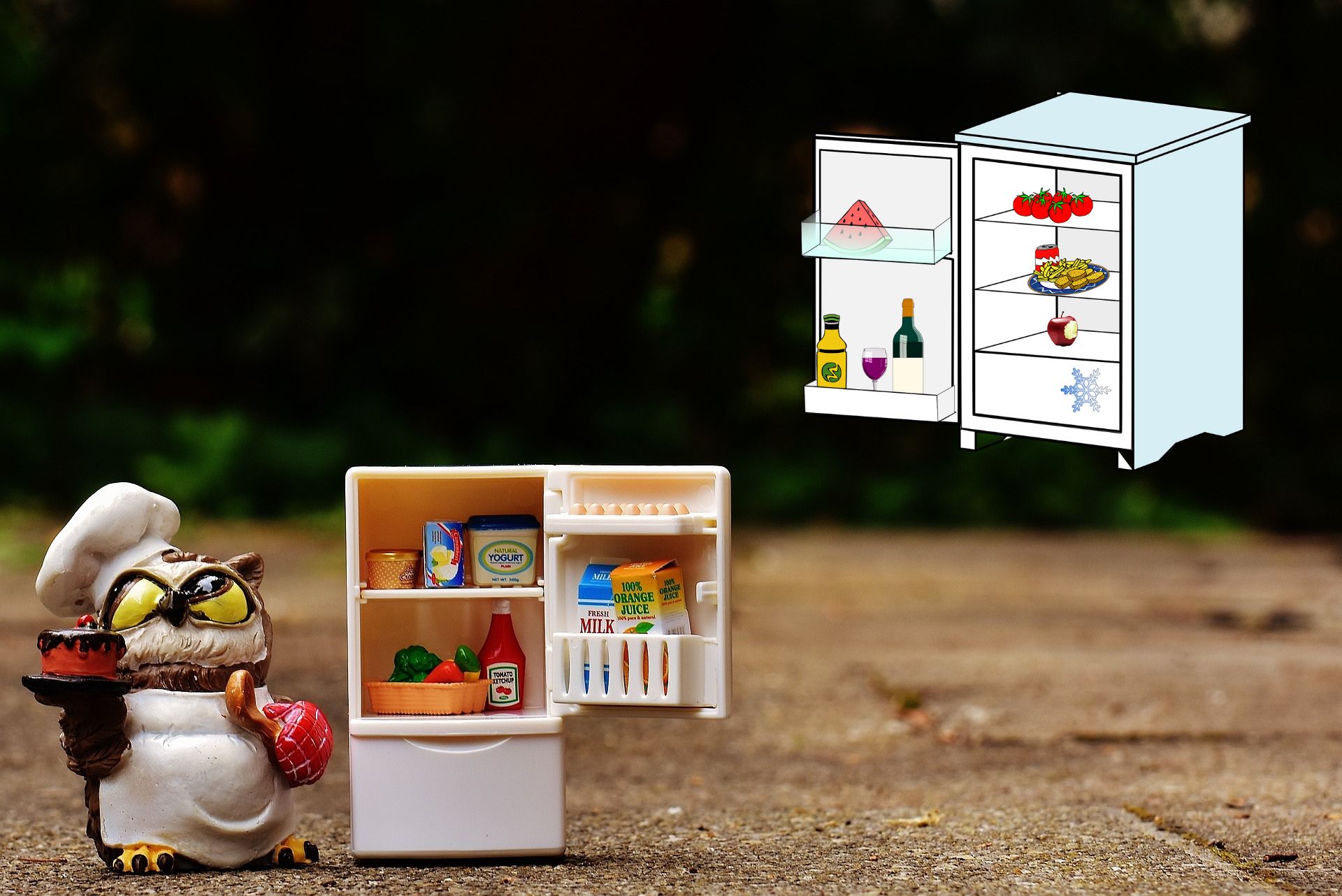Refrigerators are indispensable appliances that play a crucial role in preserving our food and ensuring its freshness. However, it can be quite disconcerting when your refrigerator making noise and also starts making strange and loud noises. Not only can it disturb the peaceful ambiance of your home, but it might also be an indicator of underlying issues that require immediate attention. In this comprehensive guide, we will delve into the common reasons why refrigerators make noise and offer an array of practical troubleshooting tips and solutions to help you restore your appliance to its former quiet operation.
Table of Contents
1. Understanding Normal Operational Sounds
Before we dive into troubleshooting the unusual noises, it’s essential to comprehend that some sounds emitted by your refrigerator are entirely normal during regular operation. These include:
Humming and Buzzing
A gentle humming or buzzing sound is a regular occurrence in refrigerators. It is primarily caused by the compressor and fans functioning to maintain the desired internal temperature. You might notice this sound becoming more prominent in quieter environments, such as during the night.
Clicking
Intermittent clicking sounds are often heard when the refrigerator’s temperature control cycles on and off. This is an integral part of the cooling process and does not necessarily indicate any malfunction.
2. Troubleshooting Unusual Refrigerator Making Noise
When your refrigerator starts producing loud or unusual noises, it’s essential to identify and address the root causes promptly. Below are some of the common reasons for these noises, along with troubleshooting steps:
Noisy Fan and Refrigerator Making Noise
A faulty evaporator or condenser fan can generate loud and irritating noises. To check if the fan is causing the problem, open the refrigerator door and hold down the light switch. If the noise intensifies, it’s likely due to the fan. Consider replacing the fan to restore a quieter operation.

Rattling or Vibrations
Loose components, such as the condenser coils or drip tray, can lead to rattling or vibrating noises. Inspect all parts of your refrigerator to ensure they are securely in place, and tighten any loose screws or bolts.
Gurgling or Bubbling
Gurgling or bubbling sounds might be an indication of a refrigerant leak or improper refrigerant circulation. This is a serious issue that requires immediate attention from a professional technician. Reach out to a qualified expert to inspect and repair the problem.
Knocking or Popping
Sharp knocking or popping noises during the defrost cycle are relatively normal. However, if the noise is excessively loud or persistent, it’s best to have a technician examine your refrigerator for any potential issues.
3. Emphasizing Preventive Maintenance
Prevention is always better than cure, and the same holds true for your refrigerator making noise-related problems. By incorporating regular maintenance into your routine, you can keep your refrigerator running smoothly and minimize the risk of unexpected noises. Below are a few proactive steps you can take to maintain your refrigerator’s optimal performance and minimize refrigerator making noise levels:
Clean the Condenser Coils
Over time, dust and debris can accumulate on the condenser coils, hindering their ability to dissipate heat effectively. As a result, the compressor may have to work harder, leading to increased noise. To prevent this, clean the coils annually to ensure efficient cooling.
Level the Refrigerator
An unlevel refrigerator can create vibrations and noisy operation. Use a level tool to check the appliance’s balance and adjust the leveling feet as needed to maintain stability.

Check the Door Seals
Worn-out door seals can allow cold air to escape, causing the compressor to work harder. Regularly inspect the seals and replace them if they show signs of damage to maintain optimal cooling and minimize noise.
4. Knowing When to Seek Professional Help
While some noises can be resolved through basic troubleshooting, certain issues require the expertise of a professional technician. Knowing when to seek professional help can save you from more significant problems down the line. Here are some instances that call for expert assistance:
Grinding or Screeching
Grinding or screeching sounds may indicate a faulty motor or compressor. If you hear such refrigerator making noises, turn off the refrigerator immediately and contact a technician for thorough inspection and repairs.
Continuous Clicking
If your refrigerator is continuously clicking without effectively cooling, it could be due to a faulty start relay or compressor. In such cases, it is best to reach out to a professional for diagnosis and appropriate repairs.
Sizzling or Hissing
Sizzling or hissing noises accompanied by reduced cooling efficiency may indicate a refrigerant leak. This is a significant problem and requires immediate attention from a qualified technician to prevent further damage.
Conclusion
A noisy refrigerator can be a source of annoyance and frustration, but with the right troubleshooting steps and regular maintenance, you can identify and resolve the underlying causes effectively. Remember to pay attention to any unusual sounds and take preventive measures to keep your refrigerator operating quietly and efficiently. In cases of uncertainty or complex issues, always seek help from a qualified technician to ensure the longevity of your appliance and have saved from refrigerator making noise.




